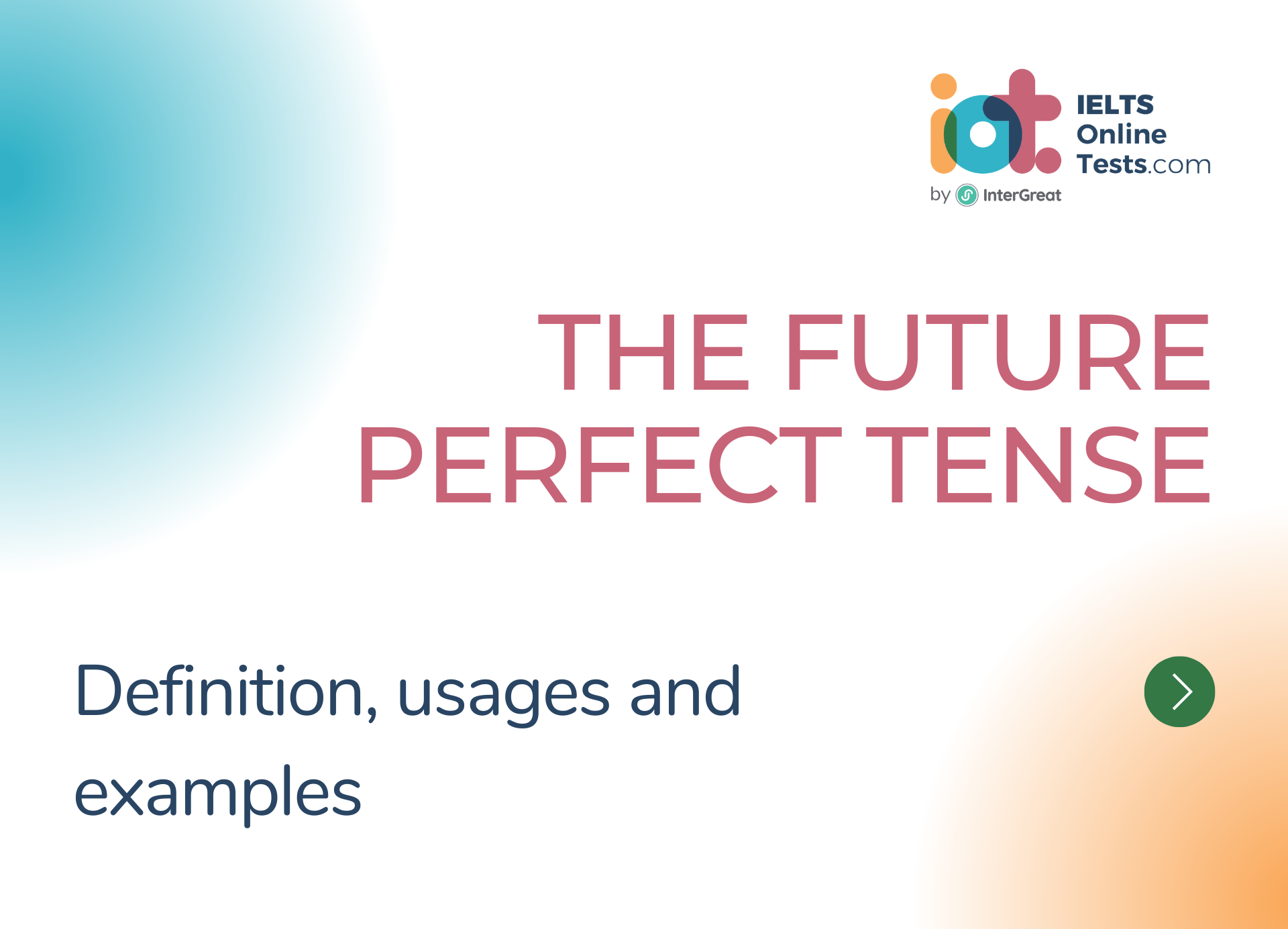
The future perfect tense
The future perfect tense is used to describe an action that will be completed before a specific point or another action in the future. It indicates that something will have happened or been completed by a certain time in the future.
Here's a detailed explanation of the future perfect tense:
Formation of the Future Perfect Tense:
- The future perfect tense is formed by using the future tense of the auxiliary verb "will" (or "shall" in some cases) followed by the past participle form of the main verb.
- Example: "She will have finished her work by then."
Usage of the Future Perfect Tense:
- Expressing an action that will be completed before a specified future time or event:
- Example: "I will have graduated by next year."
- Referring to an action that will be completed before another action takes place:
- Example: "He will have arrived by the time we start the meeting."
- Indicating an action that will be finished before a future point of reference:
- Example: "They will have left by the time the concert starts."
- Talking about expectations or assumptions based on current evidence:
- Example: "I'm sure he will have finished the report by now."
- Expressing an action that will be completed before a specified future time or event:
Examples of the Future Perfect Tense:
- "By the end of the year, I will have saved enough money for a trip."
- "She will have written the book by the time she turns 30."
- "They will have completed the project before the deadline."
- "We will have finished dinner by the time you arrive."
- "He will have learned how to play the guitar after taking lessons for a year."
Time Expressions Used with the Future Perfect Tense:
- Time expressions such as "by," "before," "by the time," "in," or specific future points are commonly used with the future perfect tense to indicate when the action will be completed.
- Example: "She will have graduated by the end of the month."
Negative and Interrogative Forms:
- To form negative sentences, add "not" after the auxiliary verb "will."
- Example: "He will not have finished his work by then."
- For interrogative sentences, invert the subject and the auxiliary verb "will."
- Example: "Will you have completed the task by tomorrow?"
- To form negative sentences, add "not" after the auxiliary verb "will."
The future perfect tense allows us to discuss actions that will be completed before a specific time or event in the future. It helps establish a relationship between two future events and express the completion of an action before a certain point. By using this tense correctly, we can effectively convey information about anticipated accomplishments or expectations in English.




